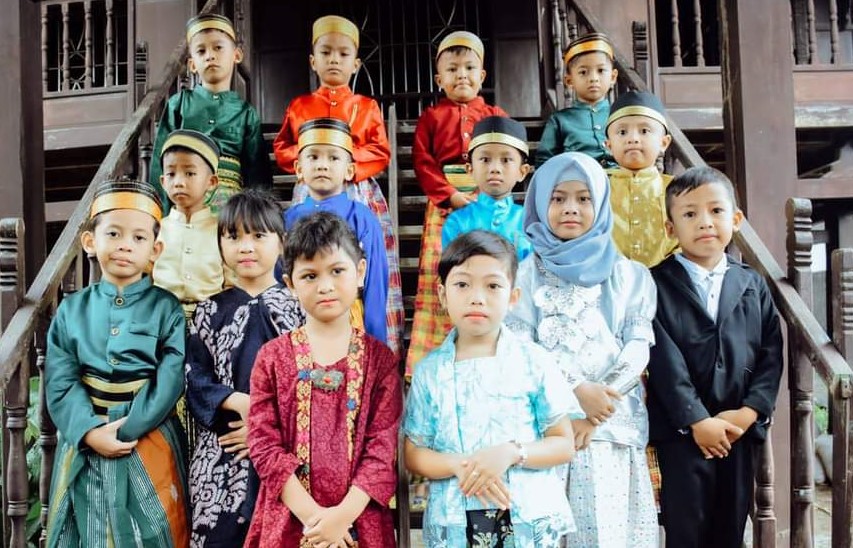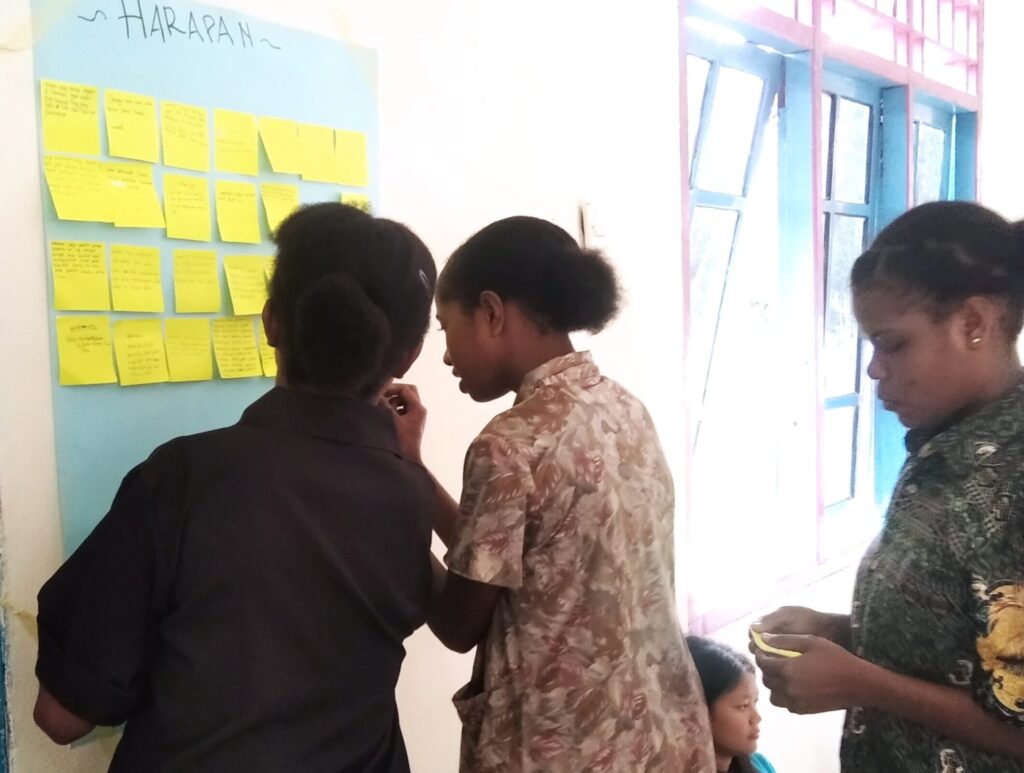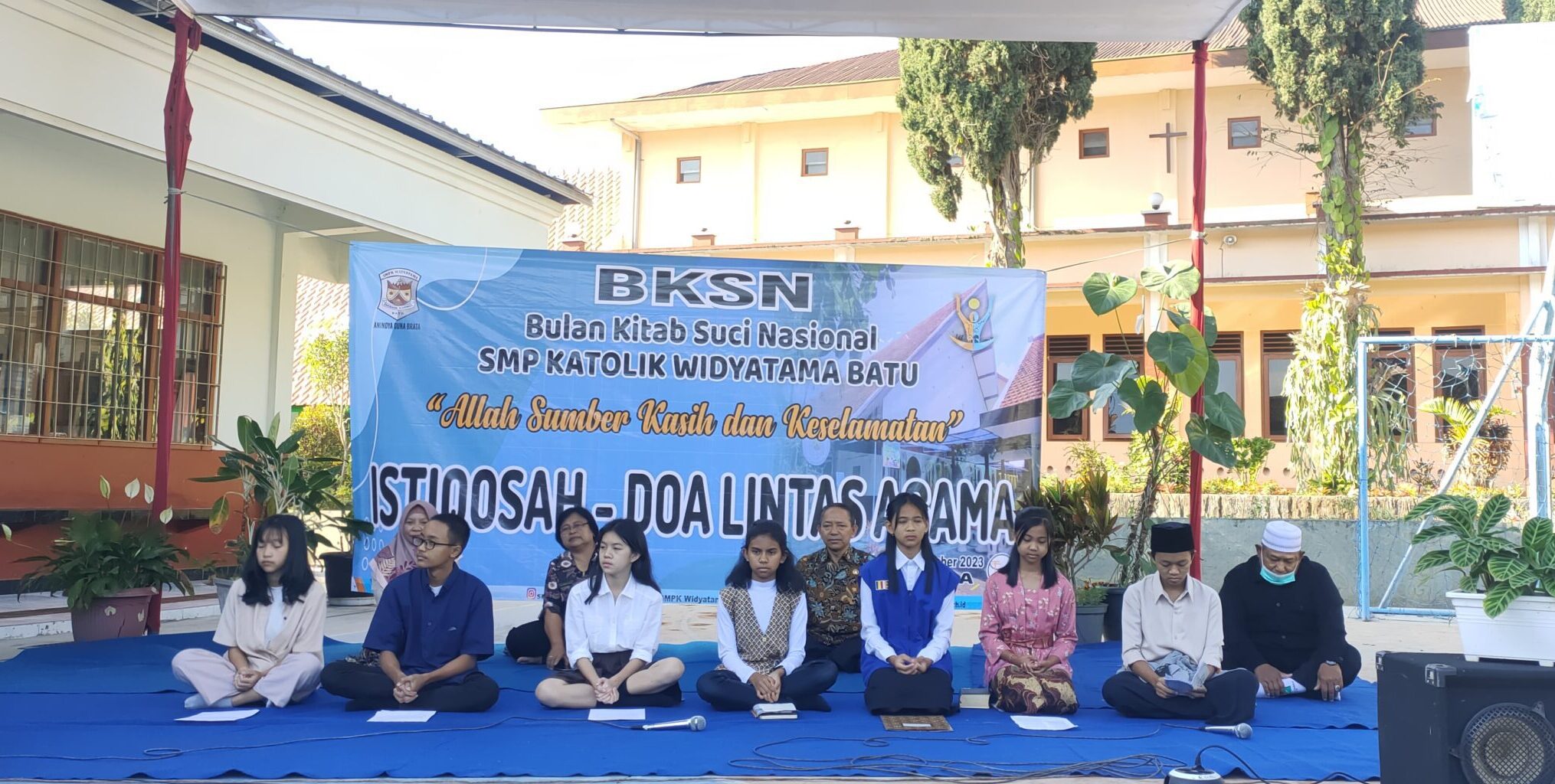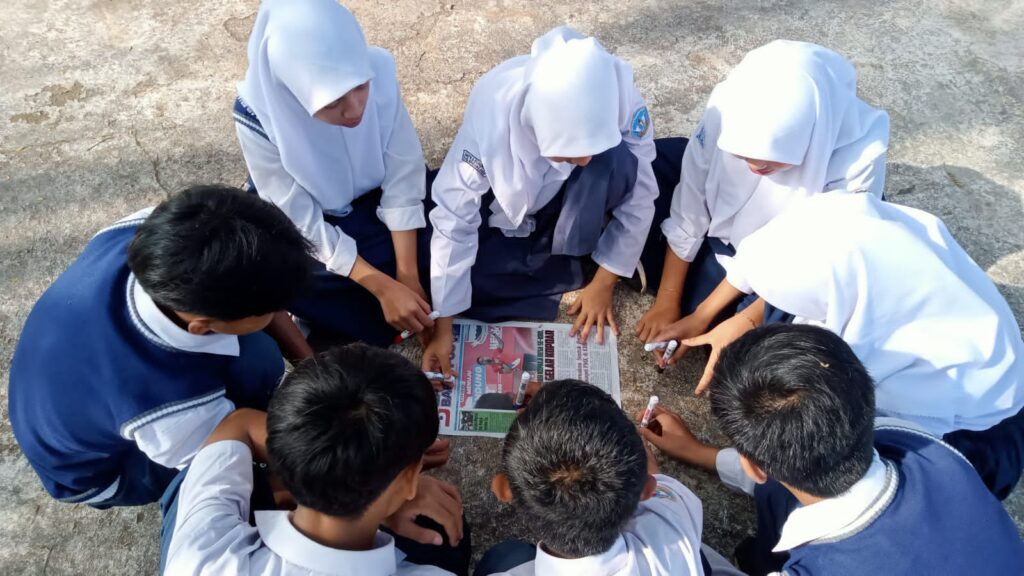
With 200 teachers from 15 schools involved, and 2,900 learners reached, the implementation phase of the Ethics Education Fellowship successfully concluded in Indonesia, showcasing positive results for both teachers and learners.
Connecting with the existing foundations of Indonesia’s Pancasila Learner Profiles (P5) model, the Ethics Education Fellowship brought valuable assets with its transformative pedagogy approach. Tackling many of the challenges left by the COVID-19 pandemic, the implementation of ethics education in the classrooms positively influenced learners’ behaviors, attitudes and motivation.
Teachers and Students Leading the Process
Following the National Teacher Training workshop which took place on 14-17 February 2023 with the participation of 93 educators, ethics education programs were implemented in 5 provinces in the country (West Java, East Java, Papua, West Kalimantan, and South Sulawesi). The implementation in schools involved children ranging from Kindergarten to High School levels including special education classrooms. The selection of the participating schools and classrooms was decided inclusively and collaboratively, giving prominence to the diversity of learners, their accessibility and socio-political backgrounds.
Among the activities conducted with children, the learners and the local communities highlighted their appreciation for the open dialogue sessions, focus group discussions, and interfaith and intercultural visits and celebrations.

The students established Social Labs in each school with the guidance of their teachers. They also organized monthly academic sessions to reflect on social issues with the entire school community. These interventions greatly improved learners’ critical thinking and problem-analysis skills related to issues both within the school and in the broader community, such as bullying, sexual education, digitalization in learning, gender issues, and more.
Another initiative with great results was the Online Interconnection Meetups with international students. Students reported a positive impact, as these instances helped them exchange experiences about their diverse value systems and ethnic, cultural, and religious identities.
As shared by the teachers who are implementing the programs, there have been clear improvements among students such as better relationships among peers, teachers and parents, an improved capacity to reflect and make informed decisions, the ability to clearly express themselves, openness to diverse perspectives and differing ideas, enhanced social solidarity, empathy and sense of responsibility and other similar qualities.

Similarly, the teachers involved in the process also identified their own capacities expanding parallel to the integration of ethics education to school curricula. For example, the ethical value system introduced in the program provided teachers with ideas and experiences to incorporate them into their teaching approaches. It has also boosted their confidence in implementing the Pancasila Learner Profile, as ethics education and the Pancasila Profile complement each other. Furthermore, they have been able to complement their teaching capacities through learner empowerment, introducing joyful and collaborative learning to daily practice and ethical reflection and dialogue in the classroom, embodying the role of role models to their students.
“In my school, there are rules that prohibit students from wearing accessories. After participating in Ethics Education activities, we learned that there are religious bracelets worn by Hindu students. After that, the school rules became more relaxed. As a teacher, I have come to understand that we cannot enforce a rule without trying to understand the specific reasons behind others’ behaviors”, expressed a teacher who was involved in the ethics education implementation activities, reflecting on their own learnings.
Community Impact Beyond the Classroom
The implementation of ethics education in schools also had a significant impact on the local communities in Indonesia. Other than the teachers, students and administrators of the educational institutions, the parents of the students, religious leaders and representatives from different religious groups, environmental practitioners, civil society groups and other various stakeholders contributed and actively participated in the program implementation. These stakeholders play essential roles in the successful implementation of ethics education programs, contributing to a more holistic and inclusive approach.

Due to this engagement, many value additions were created that facilitate inclusive and peaceful practices within the community. Notably, the relationships between students and their community members strengthened, with a grown interest in intercultural and interreligious collaboration. Also, the introduction to safe learning spaces for children has allowed the learners to openly discuss their issues and differing perspectives respectfully. The learners also have built a sense of belonging to their community and now can better understand their role in their society and the responsibilities they share.
According to a reflection shared by an elementary school-level participant, the confidence gained from participating in the ethics education programs has had a positive impact on making many friends. It also has helped them to become more independent and conscious of diversity within their learning community.
The learners have developed competencies to contribute towards a more just, inclusive and peaceful society by becoming champions to advocate anti-bullying, peaceful conflict resolution, and environmental protection and preservation as global citizens.
Ethics Education and its National Impact on School Education
Among the school-level activities conducted through the program, there were also multiple advocacy elements to the implementation of ethics education in Indonesia. One of the highlights of this process is strengthening the P5 program. This initiative has contributed to the enhancement of the P5 program and the development of prototypes for its implementation across all education levels and in various regions. These prototypes can serve as models for scaling up teacher training on a national scale, reaching a larger number of educators and students.
Curriculum Enhancement for Ethical Education can be identified as another intervention that has grounded the integration of ethics education in the national curriculum. By introducing ethics education as a preventive measure in cases of bullying, the program has contributed to creating a more comprehensive and holistic curriculum. This inclusion emphasizes the importance of ethics and values-based education in fostering a positive and respectful school environment, ultimately helping to prevent incidents of bullying.
Additionally, the program is supported and strengthened by the collaboration of multiple stakeholders such as the Ministry of Education of Indonesia, the UNESCO National Commission, local governments, educational institutions, interfaith institutions, cultural centers and many others.

Ethics Education Fellowship
The Ethics Education Fellowship is a flagship initiative to promote inclusive and peaceful societies. Through the fellowship, teachers are trained to integrate ethics education as an entry point to transform education.
The Fellowship program was launched in 2022 as a collaboration between Arigatou International, the Guerrand-Hermès Foundation for Peace, the KAICIID International Dialogue Centre, the Muslim Council of Elders, together with the UNESCO Regional Office for Eastern Africa and the UNESCO New Delhi Cluster Office.
This initiative is currently functional in six countries including Bangladesh, Indonesia, Kenya, Mauritius, Nepal and Seychelles, and is being supported by the Ministries of Education and UNESCO National Commissions of respective countries. Currently, the fellowship has reached over 323 educators and 7,334 children among the six participating countries and made a transformative change in their educational systems as well as local communities.
In Indonesia, this impact has reached 200 teachers and more than 2,900 learners with the support of many stakeholders who were part of the process. The group of Fellows and partners are hoping to expand the teacher training opportunities for ethics education, enhancing the ethics education curricula and learning materials as well as strengthening the support structures provided for teachers and learners engaged in the program.
We would like to thank the Ethics Education Fellows from Indonesia including Ms. Nita Isaeni, Ms.Euis Lesmini Djuanda, Mr.Albertus Bambang Buntoro, Ms.Alia Nilawati, Mr.Rudy Yanuarto and Mr. Abu Khaer who committed their time and effort to make this journey of success a possibility. Also, our gratitude goes to all the teachers who were involved in the implementation of the program and other key stakeholders who shared their valuable time and resources to support the process.
